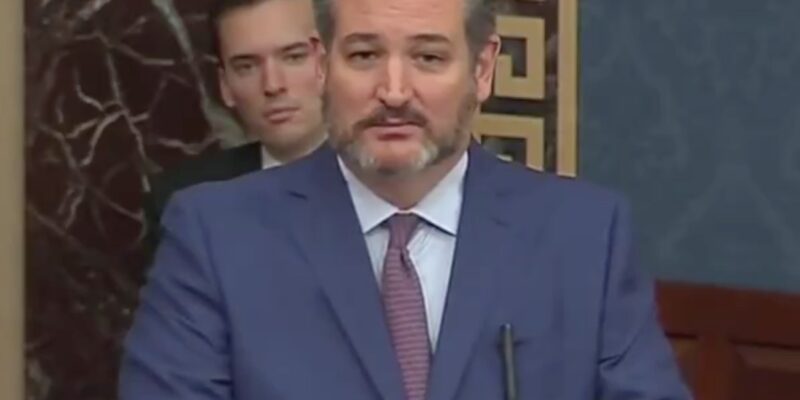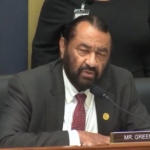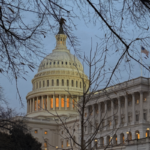Texas Senator Ted Cruz's (R) TAKE IT DOWN Act has passed the senate. The bill is now sent to President Joe Biden's (D) desk for him to sign into law.
Senator Cruz announced the bill's passing on social media, sharing that he had met with Elliston Berry and Francesca Mani, "two of the driving forces behind this legislative victory." Both Berry and Mani are victims of AI-deepfakes.
"This important legislation will require social media companies and other sites to remove non-consensual intimate imagery and criminalize the person who published the hurtful images," Senator Cruz further shared on social media.
Yesterday, the Senate unanimously passed my bipartisan bill, the TAKE IT DOWN Act.
This important legislation will require social media companies and other sites to remove non-consensual intimate imagery and criminalize the person who published the hurtful images.
After the… pic.twitter.com/vbw9CqpLAQ
— Senator Ted Cruz (@SenTedCruz) December 4, 2024
Senator Cruz, who is a Ranking Member of the U.S. Senate Commerce Committee, introduced the bill earlier this year. Known as the Tools to Address Known Exploitation by Immobilizing Technological Deepfakes on Websites and Networks (TAKE IT DOWN) Act, the bill directly addresses "revenge pornography."
The bipartisan legislation addresses a concern that has become prominent, and it seeks to protect victims of non-consensual intimate image abuse (NCII).
When Senator Cruz introduced the bill in June, he shared that "in recent years, we've witnessed a stunning increase in exploitative sexual material online, largely due to bad actors taking advantage of newer technologies like generative artificial intelligence." Though he did note that some states offer legal remedies to help victims of non-consensual intimate imagery, he further noted that "states would be further supported by a uniform federal statute that aids in removing and prosecuting the publication of non-consensual intimate images nationwide."
According to a press release from the Lone Star Senator, the bill will address the following:
- Criminalizing the publication of NCII in interstate commerce. The bill makes it unlawful for a person to knowingly publish NCII on social media and other online platforms. NCII is defined to include realistic, computer-generated pornographic images and videos that depict identifiable, real people. The bill also clarifies that a victim consenting to the creation of an authentic image does not mean that the victim has consented to its publication.
- Protecting good faith efforts to assist victims. The bill permits the good faith disclosure of NCII, such as to law enforcement, in narrow cases.
- Requiring websites to take down NCII upon notice from the victim. Social media and other websites would be required to have in place procedures to remove NCII, pursuant to a valid request from a victim, within 48 hours. Websites must also make reasonable efforts to remove copies of the images. The FTC is charged with enforcement of this section.
- Protecting lawful speech. The bill is narrowly tailored to criminalize knowingly publishing NCII without chilling lawful speech. The bill conforms to current first amendment jurisprudence by requiring that computer-generated NCII meet a “reasonable person” test for appearing to realistically depict an individual.















